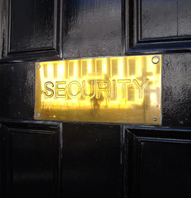Having worked within the security industry for many years now, I’ve been fortunate to experience many sides of the role; I’ve managed the staff, I’ve written assignment instructions and I’ve been the client. I’ve worked with Building Site staff all the way through to DV cleared officers and the role is very different at every level. So why, as security companies, are we forced to categorise our staff into such small pigeonholes? asks Paula Mathers, Assistant Director at Coverguard Services.
In previous employment, my staff were DV or SC cleared security officers working on a secure (as the clearance suggests) government site. For those who don’t know, a DV clearance (or Developed Vetting) is a very intrusive security clearance. It takes six months to complete and vets your friends, family, finances, your past from the day you were born, places you’ve travelled etc.
It prevents you from having certain relationships – if your prospective partner has ever had a CCJ then you can forget that relationship; if your sister took a gap year in Russia for her language degree, then you can kiss goodbye to your clearance; if you have a friend who you don’t even know is doing something illegal, they will find out and you’re guilty by association! It is very stressful. An SC (or Security Clearance) imposes financial checks to ensure you aren’t likely to be blackmailed for financial reasons, and looks at your criminal past. As long as you’re upfront about mistakes you made in previous life, you’re good to go.
The security officers were split into these two categories – SC or DV. Those who were DV cleared were subject to everything I’ve listed above and expected to do a great deal of work. They would patrol the secure site, check all secure buildings and had to work with anything up to TOP SECRET STRAP 3 environments. Those who were SC cleared only dealt with information up to SECRET, didn’t have to patrol the inside of the buildings and only had to do Proof-of-Presence external patrols; a much easier life. Both, however, are classed as static guards, and are paid as such (I had no control over the wages or tender process). That’s right – the pay for both sets of these officers is £8.75 per hour. I pay my building site security officers more than this!!
When applying for a tender, security companies are now under a great deal of pressure. The market is saturated with Security Agencies / Companies, and, with company cut backs, the budget for security staff is being squeezed so tightly that there is very little breathing room. You could have an ACS Score within the top 25 per cent of your sector, you could treat your staff impeccably, you can even know the company you are applying to tender to inside out, but if your price is too high, you won’t get the job. Now, what is too high? What overheads does a security company have? Why can’t we pay our DV staff £30 an hour like they deserve??
For some reason, security officers have been pigeonholed into roles that really don’t have anything to do with their job. To name just a few, we have static guards, door supervisors and mobile patrols. How do you separate a static guard, sat in an office all day-night on a risk free site from a DV security officer on a high-risk government site? Why should they be paid the same? Why do we categorise a door supervisor working on the door of a club in a bad area of the city centre in the same way as a door supervisor working on the door of a fancy wine bar in Notting Hill? Security companies are partly to blame; we know the difference, but yet we don’t educate our clients on this. We understand that to work a summer fete is much lower risk than to man the doors on a club in central Manchester but yet if we upped our prices, we wouldn’t get the job. The mentality becomes; what is worse – not to be able to provide shifts for our staff, or to provide them at a lower rate of pay? It’s hard because we see how much our good officers do work. We need to all club together to show our clients that there are so many different roles security staff do; so many qualifications they have to have; so much they are expected to give up in their personal lives in order to do the job we need them to do that they need to be rewarded as such. The market may be saturated with security companies, but it’s down to those of us who have worked hard enough to obtain our ISO9001 and ACS Certification to set the precedent. We represent the security industry as a whole and we need to promote a united front as together we can take this industry further.










